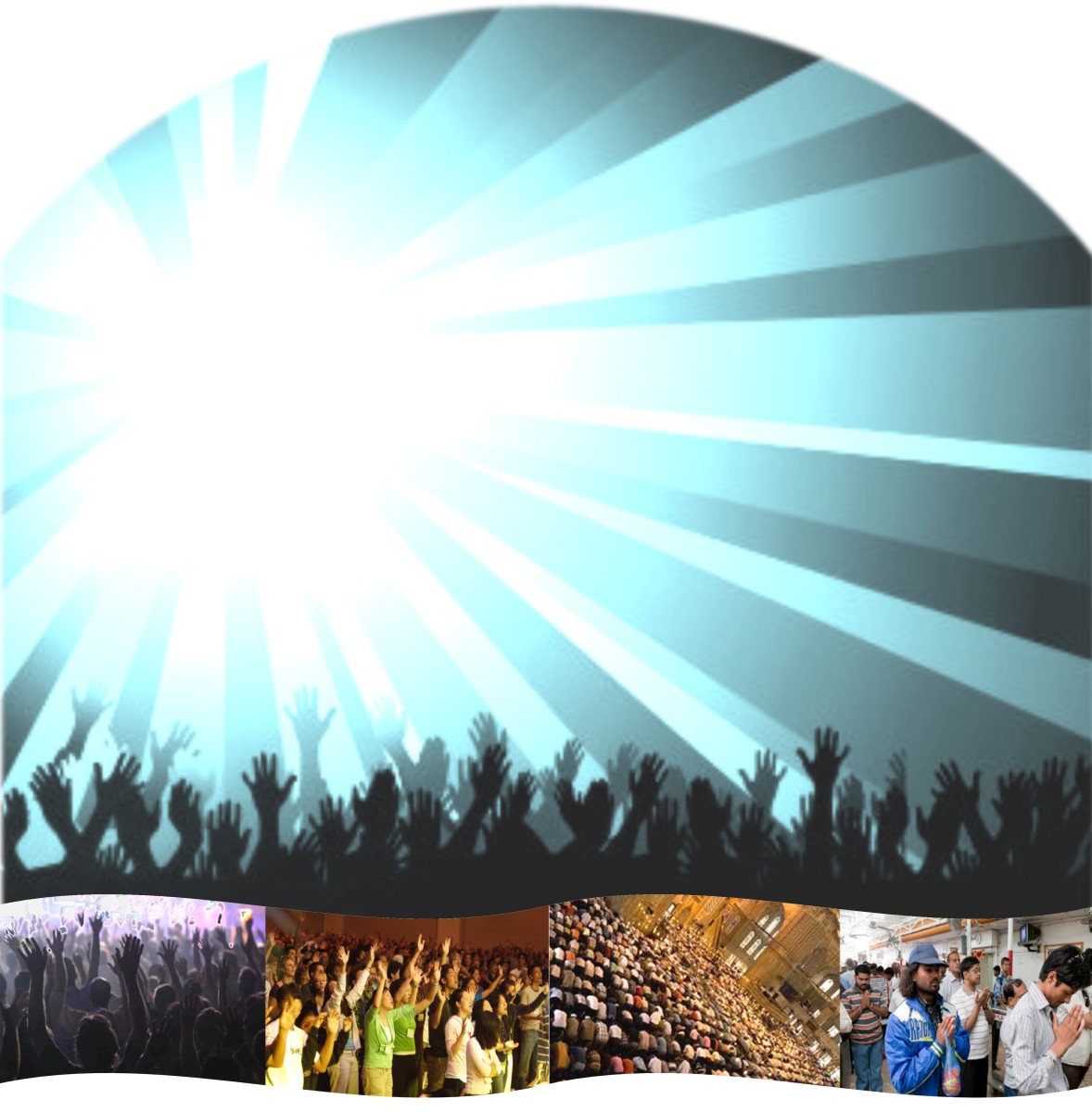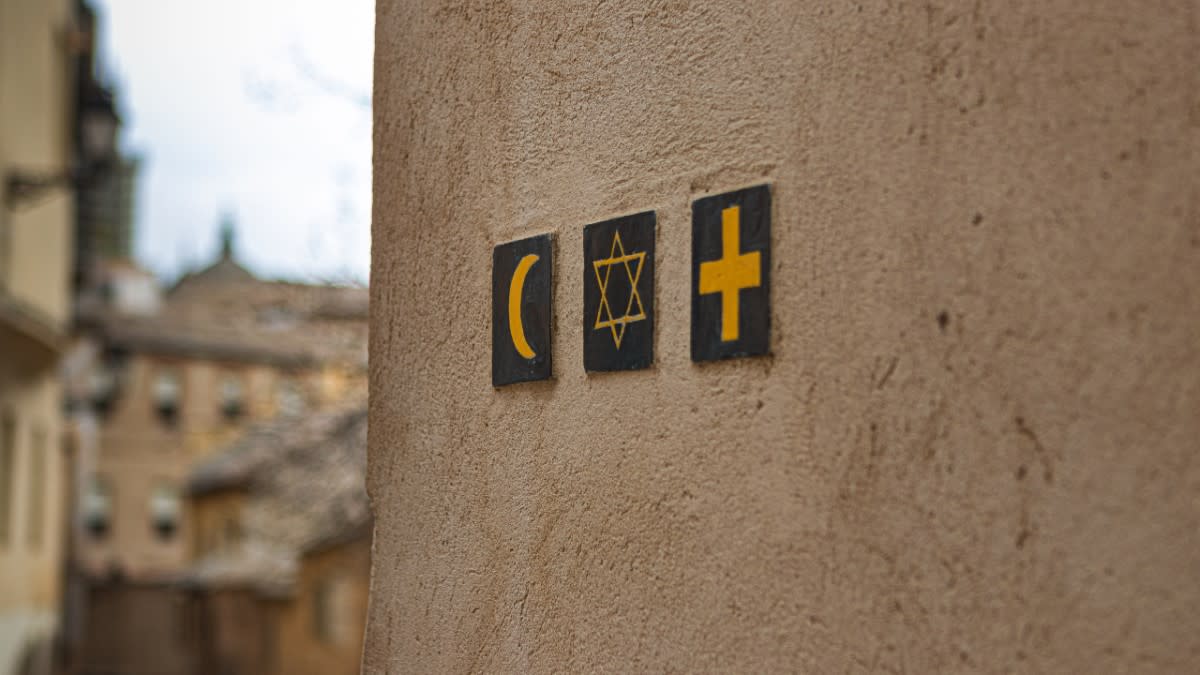Studies of Death and Religion
Current Research on Death and Coping
A 2000 study by Maltby and Day, gathered scores on the Death Obsession Scale (Abdel-Khalek, 1998, as cited by Maltby and Day, 2005) in an effort to replicate and refine previous findings that suggested that those who are religious exhibit and report less death anxiety and distress. The researchers administered the Death Obsession Scale and the Age Universal Scale (Maltby, 1999, as cited by Maltby and Day, 2005) to undergraduate college students in order to assess the levels of death obsession and religious orientation. The results of the study did show that those who reported a stronger religious belief scored lower on the Death Obsession Scale, and the researchers concluded that their findings were suggestive of a significant association between religious orientation and death obsession. This brief and simple study is useful as a potential framework for future studies, as it appears both parsimonious and valid with strong results. The drawback is that since the sample was so small, 156, and from such a limited pool of participants – all SheffieldHallamUniversity undergraduate students – the generalizability is quite restricted.
Another study conducted looked at the correlation between religious variable and both death depression and death anxiety (Alvarado et al., 1995). The researchers hypothesized that participants who registered lower scores on death depression and anxiety would score higher on religious variables, and this prediction was essentially fulfilled. The researchers found that those who reported a stronger conviction of religious belief in an afterlife also had less death anxiety, depression, and distress. One point of interest that what somewhat different from what was expected was that those who reported the belief that the most important aspect of religion is its tenet that there is an afterlife actually scored higher on death depression and death distress scales. The researchers’ conclusions included the idea that the level of belief in an afterlife and religion has more to do with lowered death anxiety, depression, and distress than does simply being active in one’s religious institution. This particular study is somewhat older than the others, but provides a good background for the subject area. Because the researchers found a moderate negative correlation between death anxiety, death depression, and death distress and both religious conviction and a belief in life after death, this study allowed the researchers – and future researchers – to get a more focused idea for areas of focus in research to come. Some of the problems may have been, again, the limited subject pool; all participants were either undergraduate students in Fresno or employees (or spouses of employees) at a Fresno hospital. Also, the subjects numbered just 200, so generalizability is low for this study. However, this study did allow for participants to identify as Catholic, Protestant, Jewish, non-believers, or “other.”
Osborne and Vandenberg conducted a study in 2003 which looked at the difference in coping styles between Protestants and Catholics. The participants indicated which, if any, of several coping mechanisms – praying, pleading with God, etc. – they would use if faced with each of three hypothetical stressful circumstances: the death of one’s father, being in a ships during a storm, and a job promotion. Overall, both the participant’s religious orientation and the specific stressful situation greatly influenced their reported coping strategies; participants rated the death of one’s father as more stressful than the other two situations. Catholics reported more likelihood to engage in coping behaviors and a stronger inclination to plead with God than did the Protestants, and also seemed to exhibit more distress when faced with a situation over which they have no control: father’s death (Osborne & Vandenberd, 2003). For this study, the population was more intentionally focused, but, as such was more limited; the participants were members of either Catholic or Disciples of Christ (a denomination of Protestantism) Churches, and more than 90% of the participants identified their ethnicity as White. Because the goal of the study was to determine what, if any, differences there were in coping between Catholics and Protestants, the population choices made a good amount of sense, though the number of participants was low: 153. While the study seems cohesive, it does not seem to generalize beyond white Catholics or Disciples of Christ, which significantly narrows the applicability of such research.
Austin and Lennings’ study (1993) focused more on the possible mitigating effects of a belief in God and an afterlife on coping with a close death. The results about religion as a moderating factor in grief were somewhat ambiguous in this study: objective measures showed little to no difference among groups with different levels of belief, while subjective measures – participants rated how helpful being religious was in coping with the death – showed a large effect. The researchers concluded that the degree of a person’s belief is not relevant, but the fact that they have the belief at all is what makes the difference. More than even the previously mentioned studies, the generalizability of this particular study is reduced by the fact that there were only 57 participants and approximately half were university students and more than 80% were females. While the results were interesting, the scope of the study makes any overall conclusions dubious.
Benore and Park (2004) amalgamated much of the recent research regarding religion and death into their essay, which seems to give a solidly inclusive picture of what research has shown to date. The grand picture seems to be a suggestion and strong indication that a belief in the afterlife and a belief in a continued relationship with the deceased both contribute to the alleviation of grievance and seem to be able to equip the bereft better, allowing them to accept the death and garner strength from the experience more swiftly than those who do not hold such beliefs.
Criticisms of the Research
The biggest factor that may act as a confound in all of these studies is that they do not necessarily incorporate the differences between religions, these studies are mostly concerned with the Christian faith(s) in comparison to those who do not identify as religious or different sects of Christianity compared to one another. The difficulty here is that a person can identify as non-religious and still believe in a higher power or an afterlife of some kind. Though not surprising that these studies focus on Christians – all were conducted in the United States as well as the United Kingdom, both countries with a majority Christian population – the differences between the beliefs of Judaism and Hinduism are notable regarding what, precisely, happens after one dies. Curiosity arises, questioning whether or not the belief in an afterlife extends to reincarnation – where the bereft do not have a similar “guarantee” of meeting a loved one in the next life as do many Jews, Christians, and Muslims – in relation to an alleviation of some grief after a close death. It is also notable that there are likely differences in the attitudes toward death and bereavement between those who believe for certain that there is no life after this one as compared to those who simply seem unconcerned about discovering the truth of after life. All in all, the research exploring the relationship between religious beliefs and death attitudes is strikingly incomplete.
The most glaring gap in religion and death research lies in the narrowness of the studied populations. A more diverse angle would be advantageous, and allow researchers to better understand what, precisely, it is about religion that it has the ability to alleviate some of the negative psychological effects of death. To this end, a comprehensive study of the key differences between religious beliefs regarding death – at least for the most popular religions – is suggested. Another primary step in continued research may be to use the framework of the previous studies and conduct a wider study, deliberately including Christians, Jews, Muslims, Buddhists, Hindus, atheists, and agnostics. It would be interesting to see if the conclusions drawn from the Christianity-driven studies stay salient when applied to people of other faiths, and noting the differences between atheists and agnostics is also a key factor when comparing religious people to non-religious people. By doing this, it seems that it would be significantly easier to partial out what it is about religion that alleviates fears about death and mitigates some of the confusion and pain when losing a loved one. The easy answer seems to be that religion offers a life after this one, but it does not seem to have been determined empirically. Another question comes up: if a person is not religious, but knows the psychological benefits of religion, is it possible to consciously cultivate such a belief?
Note
This hub is primarily intended as an addendum to my hub on Understanding Death, which you may find here: Understanding Death through Religion








